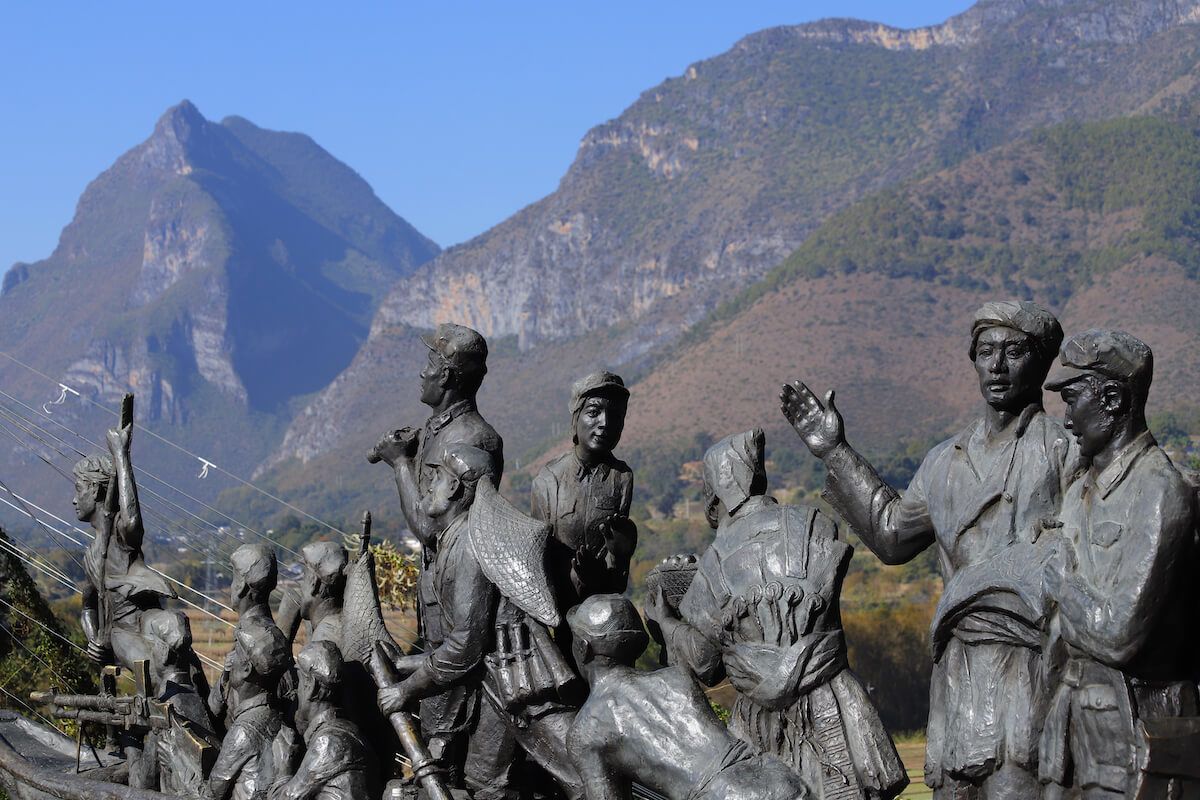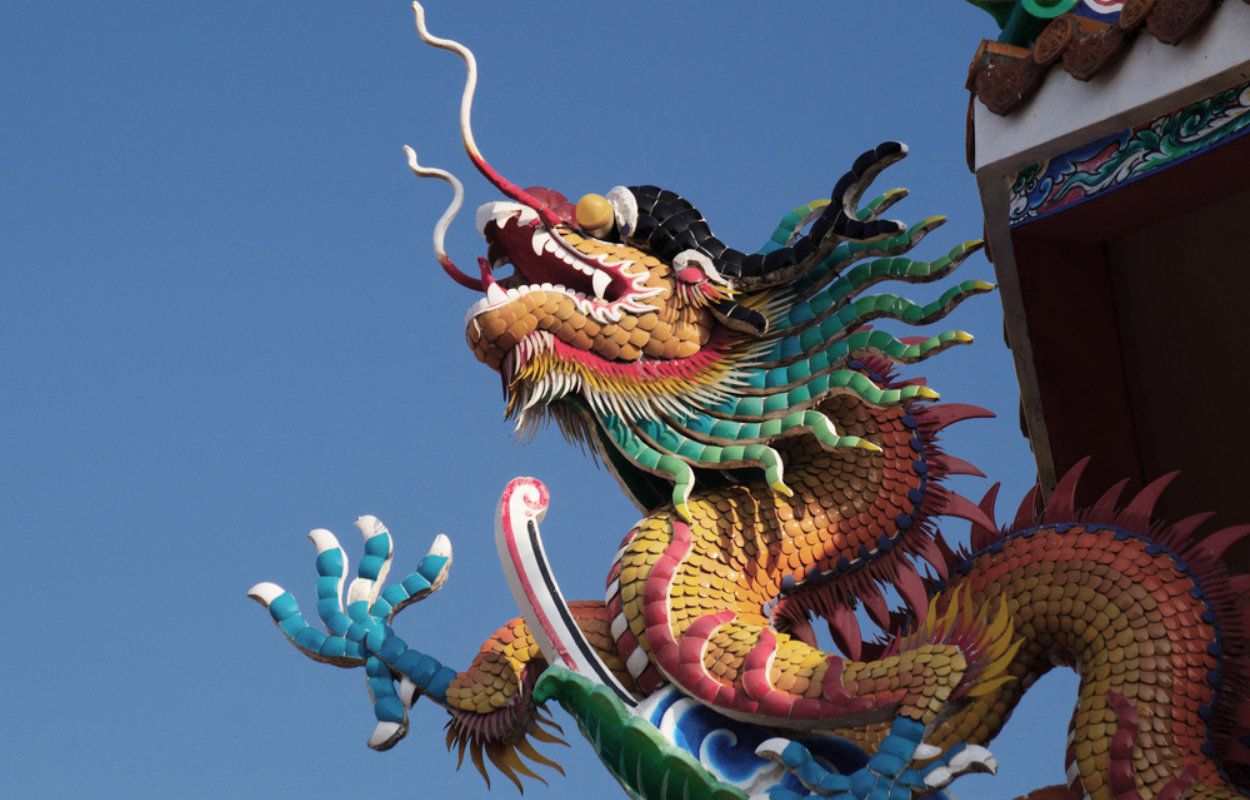The "Chinese Dream"
and the search for the place in the sun

On November 15, 2012, Xi Jinping was elected General Secretary and Chairman of the Communist Party's Military Commission. He thus occupies the center of power in the Chinese party-state. Just two weeks later, he reportedly used the phrase "Chinese dream" (中国梦) for the first time.
Six years on, he said in a speech that they are now closer, more confident and more capable than ever of achieving the goal of the "great revival of the Chinese nation. This would succeed, he added, as long as the more than 1.3 billion Chinese people continued to pursue their dreams. The road to that goal would require nothing less than a "new Long March." The expression, now repeatedly used by Xi, is meant to recall the historic and long-mystified Red Army retreat of 1934/1935, which meant enormous troop losses but also produced numerous heroic stories and stood for the party's persistence and willpower. Deng Xiaoping had already used the same image of a "new" Long March when announcing the reform and opening-up policy in the late 1970s.
This alone shows that the "Chinese dream" must be understood along a longer historical and also ideological perspective.
This applies in both directions of the timeline, to the past as well as to the future. The dream, which is directly linked to the slogan of the revival of the Chinese nation that goes back to Jiang Zemin, refers far back to Mao Zedong and the historical experience of the "century of ignominy" that also defines China in the understanding of the Communist Party. It is thus about the traumatizing humiliation of the Chinese nation by the Western imperialists between 1839 and 1949. In the year of the founding of the People's Republic, Mao declared the period of ignominy to be over, and thus the project of returning to the former greatness could begin.

Long March Monument of the Red Army in Shigu, Yunnan.
Long March Monument of the Red Army in Shigu, Yunnan.

The Chinese have a special way of dealing with their dragon. In China, the dragon is considered the ancestor of man.
The Chinese have a special way of dealing with their dragon. In China, the dragon is considered the ancestor of man.
It has become a project for the future of the century. Jiang had first started talking about "two century goals"; under Xi, they became the central slogan. On the 100th birthday of the Chinese Communist Party, a moderately prosperous society was to be achieved by 2021, to which the elimination of absolute poverty was also linked. Then, for the 100th birthday of the People's Republic in 2049, the goal is to have transformed China into a modern nation, more precisely into a strong, democratic, civilized, harmonious and beautiful modern socialist country. The emphasis is on the adjective socialist, so that, for example, "democratic" is still to be understood as a Leninist democratic centralism, as it is also stated in the state constitution (Art. 3).
With the achievement of the second century goal, perhaps "the first stage of socialism" will also be completed and the alliance of convenience with capitalism can give way to the overriding interest of a society with economic equality. According to various party theorists, the first stage had begun in the 1950s and would last an estimated 100 years. So this fits well in terms of timing.
These long time horizons are often glorified in today's discussion and the strategically thinking China is held up against a planless Europe. However, this overlooks the fact that these are not plans which, as targets, could not be met. Rather, the reality achieved will have to adapt to the goals. For example, there was no conceivable way that the recent "elimination of absolute poverty" could not have been achieved. Even though there have been important discussions about Marxian historical materialism, a teleological understanding of history has never been abandoned in principle.
Even though the reference to the American dream is clear, the contrast could not be stronger.
So what is the Chinese dream against this background? It is a dream that cannot simply be dreamed, but must be committed to and achieved. Even though the reference to the American dream is clear, the contrast could not be stronger. The American dream of becoming a rags-to-riches millionaire is an individual dream. Despite its link to the specific social conditions in the United States, as such it is in principle also transferable. One can also dream the American dream in Poland, in Botswana, in Switzerland or even in China. The Chinese dream, on the other hand, hangs on the Chinese nation. Chinese people at home and, as Xi emphasizes, abroad are supposed to contribute to it. Their individual well-being, however, is subordinated to the national well-being. This is much more difficult to transfer. While the dishwasher in the United States and in Poland can both dream of social advancement without getting in each other's way, the Chinese dream does not seem to fit so easily with other nationalist visions.
In the final analysis, there is probably only one place in the sun in this competition.
Perhaps that is why the Chinese dream has so far had little significance as a soft power. Perhaps this is why party propaganda speaks so often of mutual gain, harmony, peace and co-existence and, as Xi has repeatedly argued, that China needs the world and the world needs China. The emphasis in party jargon on having the well-being of humanity as a community of destiny in mind is at odds with the equally accentuated nationalism that constitutes Chinese people around the world as a unity under the leadership of the Communist Party because of their "genes," their affiliation with Chinese culture, and their love for the motherland.
Recently, it has become clear in the eyes of some analysts that the People's Republic of China - and that ultimately always means the Communist Party - is striving for an alternative world order.
Talk of different "norm spaces" is making the rounds. Switzerland's intelligence service has also used this term. This certainly has to do with the fact that the People's Republic, with its economic importance and political power, now feels strong enough and behaves like a great power - simply because it can. None of this, however, should have surprised anyone. The political speeches of Mao, Deng and Xi have always been about becoming a world power and a modern socialist nation, and ultimately about the victory of socialism over capitalism.

As early as January 2013, in a speech as the party's general secretary, even before he became state president, Xi made it unequivocally clear that the assessment of some commentators who see the People's Republic today as characterized by state capitalism or bureaucratic capitalism is "completely wrong": "Regardless of how we reform and open up, we should always follow the socialist road with Chinese characteristics, the theoretical system of socialism with Chinese characteristics, the structure of socialism with Chinese characteristics, and the basic requirements set out by the 18th National Congress of the Communist Party of China for the new victory of socialism. National Congress of the Communist Party of China set out, for a new victory of socialism."
That the Chinese dream comes with a lot of ideology is obvious, but it does not say anything conclusive about the role and significance of this ideology. What is the function of ideology for the Chinese party-state? Is it an end or a means? If the latter, means to what? This should be followed by an analysis of realpolitik. There is no shortage of such at present. But without adequate consideration of the basic ideological coordinates of the Chinese Communist Party, such analyses can only fall short.
